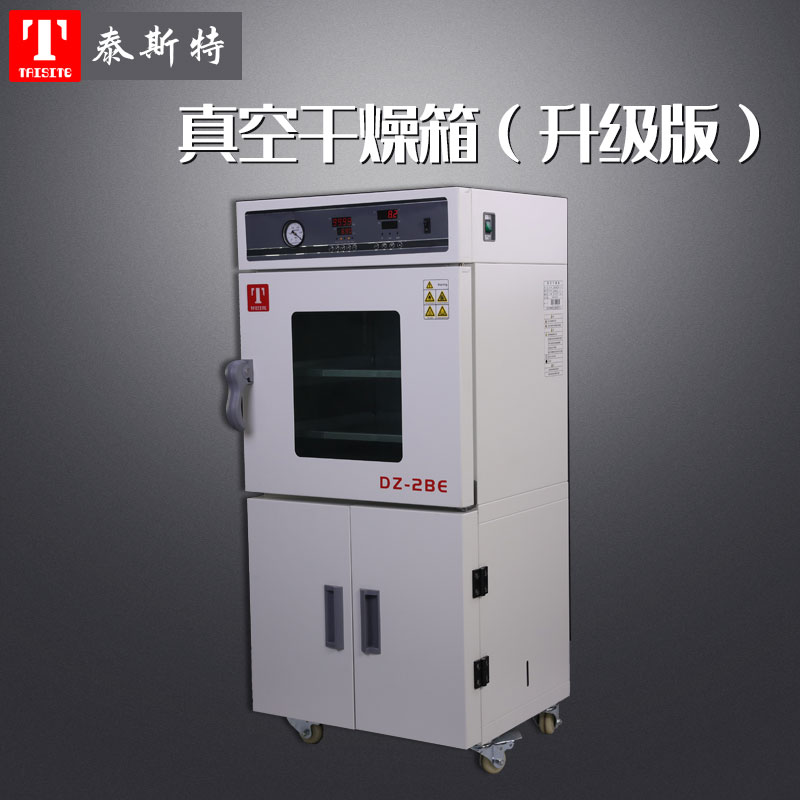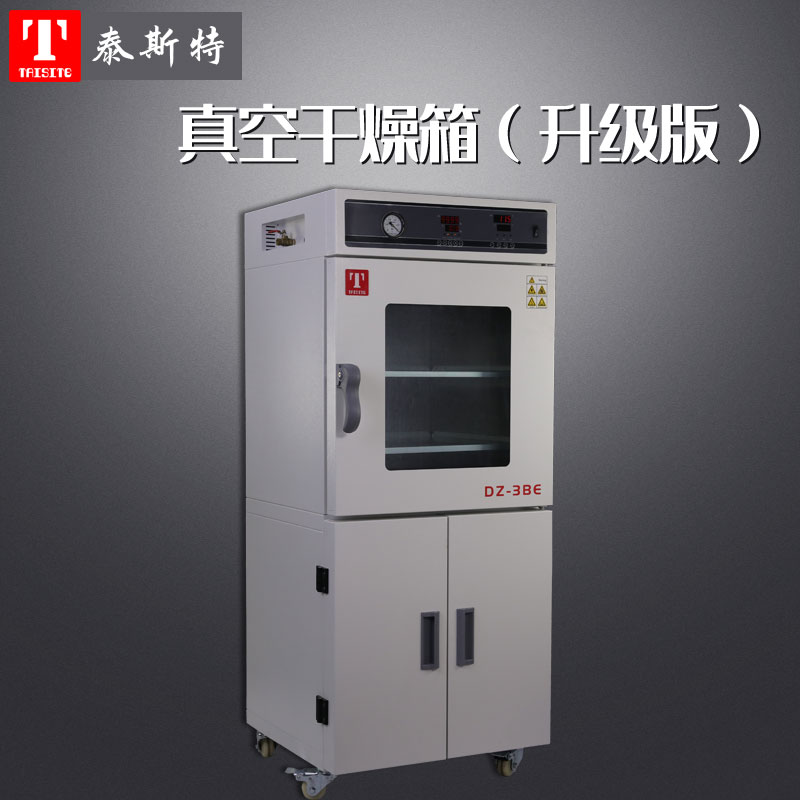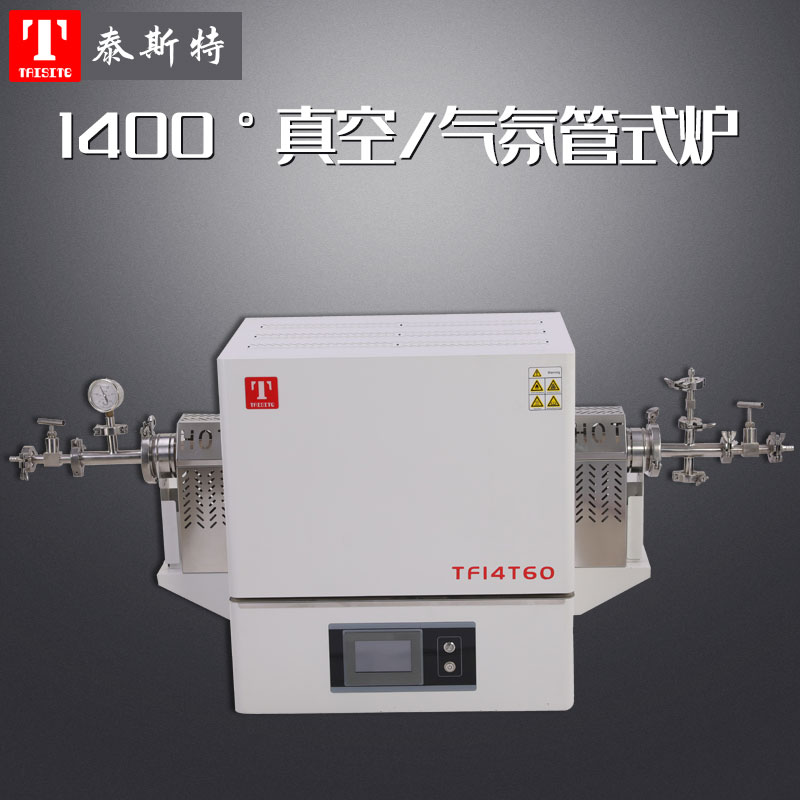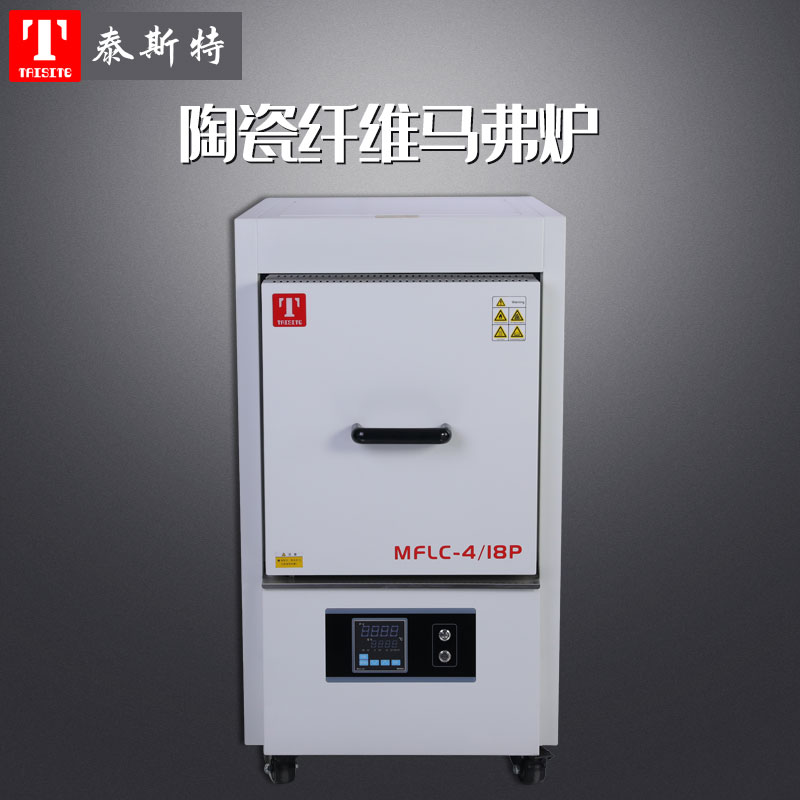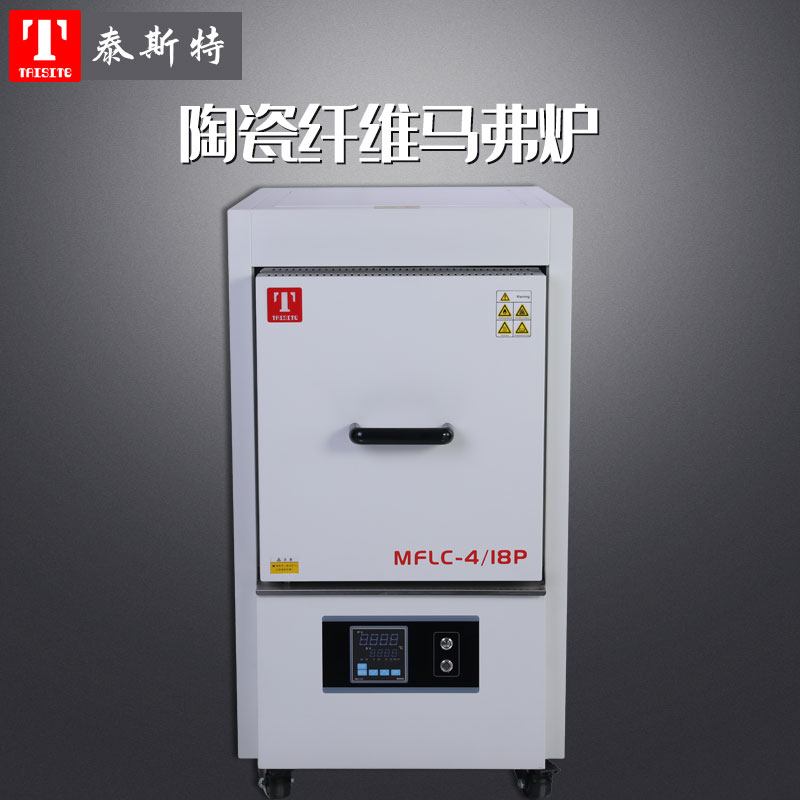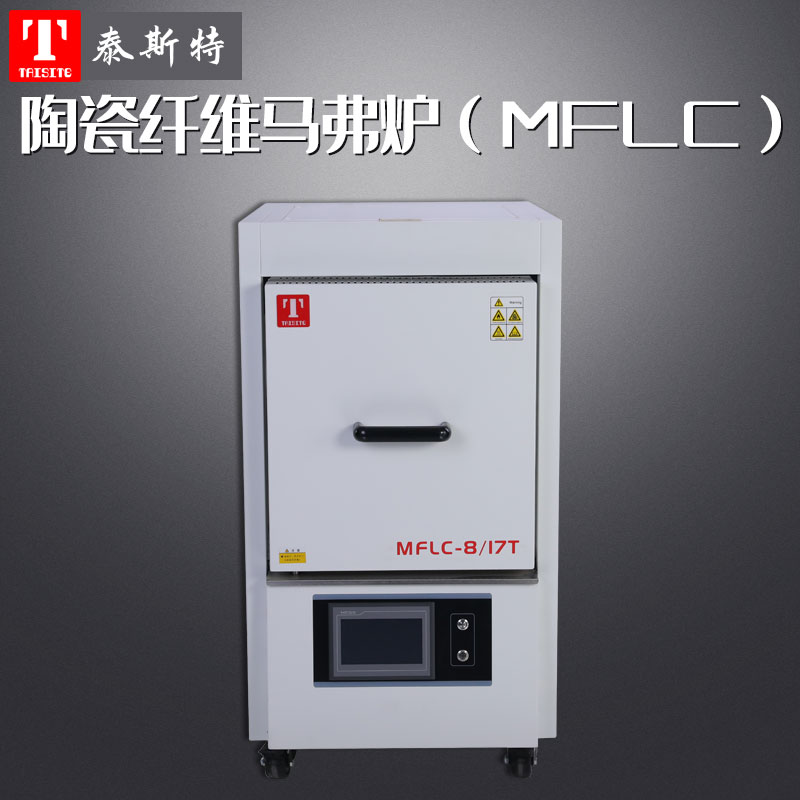Common problem one:
What is the difference between the meter reading of the vacuum drying box and the glass thermometer reading in the vacuum chamber?
Generally, the electric heating vacuum drying box adopts the method of heating the wall of the vacuum chamber first, and then heating the wall from the wall to the workpiece. In this way, the temperature sensor of the temperature control instrument can be arranged on the outside wall of the vacuum. The sensor can accept convection, conduction, and radiant heat simultaneously. The glass rod thermometer in the vacuum chamber can only accept radiant heat, and because the blackness of the glass rod cannot reach 1, a considerable part of the radiant heat is refracted, so the temperature value reflected by the glass rod thermometer must be lower than the temperature reading of the meter. . Generally speaking, it is normal for the temperature reading of the meter and the reading of the glass rod thermometer to be within 30 ° C at 200 ° C. If the temperature sensor of the temperature control instrument is arranged in the vacuum chamber, the difference between the temperature value of the glass rod thermometer and the temperature reading of the instrument can be appropriately reduced, but it is impossible to eliminate, and the sealing reliability of the vacuum chamber adds a potentially unreliable link . If you do not want to see this difference from a practical point of view, you can use the display correction function unique to the temperature control instrument.
FAQ 2: Why is the vacuum drying box vacuumed and then heated up?
1) If the procedure of heating up and then vacuuming is followed, when the heated air is pumped out by the vacuum pump, the heat will be carried to the vacuum pump, which will cause the temperature of the vacuum pump to rise too high, which may reduce the efficiency of the vacuum pump.
2) The heated gas is directed to the vacuum pressure gauge, and the vacuum pressure gauge will generate a temperature rise. If the temperature rise exceeds the operating temperature range specified by the vacuum pressure gauge, it may cause the display error of the vacuum pressure gauge. The correct method of use should be vacuumed first and then heated up. After reaching the rated temperature, if you find that the degree of vacuum has decreased, you should pump it appropriately. This is beneficial for extending the life of the equipment.
3) The workpiece is placed in a vacuum box to evacuate to remove the gas components that can be removed from the material of the workpiece. If the workpiece is heated first, the gas will expand when heated. Due to the tightness of the vacuum box, the huge pressure generated by the expanding gas may cause the tempered glass of the observation window to burst. This is a potential danger. You can avoid this danger by following the procedure of vacuuming and heating first.
Common problem three
Reasons why the vacuum drying box does not have a temperature uniformity parameter General electric heating (blast) drying boxes are equipped with temperature uniformity parameters: the natural convection drying box is the upper limit of the operating temperature multiplied by 3%, and the forced convection drying box is the work Multiply the upper temperature limit by 2.5%. But the electric heating vacuum drying box does not set the temperature uniformity parameter. Why is this? The possibility that the temperature of the working chamber can be made uniform in the vacuum drying box by the movement of gas molecules is almost gone.
Therefore, conceptually we can no longer define the uniformity of temperature specified by the ordinary electric heating (blast) drying box to the vacuum drying box. It is also meaningless to set this index in a vacuum state. The amount of heat radiation is inversely proportional to the square of the distance. For the same object, the radiant heat received at a distance of 20 cm from the heating wall is only 1/4 of that at a distance of 10 cm from the heating wall. big difference. This phenomenon is similar to the fact that when the sun is exposed in winter, the side that is exposed to the sun is very warm, and the side that is not exposed to the sun is relatively cold. Because the structure of the vacuum drying box is difficult to make the radiant heat of each point in the three-dimensional space of the studio uniform, and it lacks an authoritative evaluation method. This may be that the temperature uniformity parameter is not set in the standard of the electric heating vacuum drying box. s reason.

